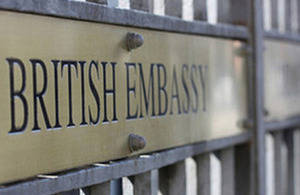Government accelerating pothole mapping project to support motorists and cyclists ahead of school return
- crackdown on potholes launched through a new data-driven review following acceleration of road repair during lockdown
- review will be supported by pothole mapping data from businesses including Deliveroo, Uber, Tesco and Ocado to help identify hotspots for repairs
- quieter roads during lockdown have led to 319 miles of resurfacing works, including potholes
- ahead of schools going back next week, review will drive forward work to make roads safer for cyclists and motorists
A first-of-its-kind audit into the mapping of potholes in England has been launched today (28 August 2020) by Transport Secretary Grant Shapps, aided by data from on-road businesses such as Uber and Deliveroo, to better target improvements so that roads are in top condition as people return to work and school.
The Department for Transport will work with Gaist, a highway data and mapping company, businesses such as Deliveroo, Uber, Tesco and Ocado, alongside local highway authorities to identify ‘pothole hot-spots’.
Combining collated data on current potholes held by nation-wide businesses and the most up-to-date bank of roads imagery in the country from Gaist, the department will be able to paint the most comprehensive picture ever of where funding is most needed to make sure roads are not plagued by potholes. It will make roads as safe as possible as more commuters and students undertake journeys in the coming months. The plan will help cyclists and motorist get back to school and work.
The government has already committed £2.5 billion in funding for pothole repairs in the biggest nationwide programme ever announced. The launch of the review comes as new data reveals that highway maintenance works undertaken in the past months when roads were quieter during lockdown has led to 319 miles of resurfacing, making sure that roads are in better condition so that people can get back to work and school safely.
Transport Secretary Grant Shapps said:
I want our roads to be as safe as possible, so during the lockdown we’ve resurfaced hundreds of miles of road. But now I want to go further by identifying critical potholes and ensuring these are fixed as quickly as possible.
We’re teaming up with delivery companies, who know the roads well, in order to map out where remaining potholes exist and then relentlessly target them with our record £2.5 billion to pothole repair fund.
Better road surfaces benefit motorists and cyclists alike ensuring the back to school and work environment is safer for everyone.
Charlie Wren, Director of Operations at Deliveroo, said:
Deliveroo riders go above and beyond to bring people the food they love and this is a great way to make sure they and other road users are safe on the road. We’re looking forward to working with the government on this important scheme to help make the roads safer for Deliveroo riders and others.
Since 2010, the government has provided over £1.2 billion solely to help repair potholes on the local highway network, including £500 million from the £2.5 billion announced in the Budget earlier this year. Safe roads have never been more important, with the government urging commuters, parents and school children to choose to cycle or walk for part or all of their commutes to help ease demand on public transport and travel safely as the country recovers from the pandemic.
Better quality roads will also make it easier, safer and more convenient than ever for people to cycle. The government has previously announced plans to deliver a cycling and walking revolution by investing £2 billion over the next 5 years to support more people to choose active travel and through the launch of our most ambition Cycling and Walking plan ever.
With potholes posing a problem to all road users’ safety, the pothole mapping review will allow for the government to ably target the worst-affected areas, levelling up road quality across the country.

